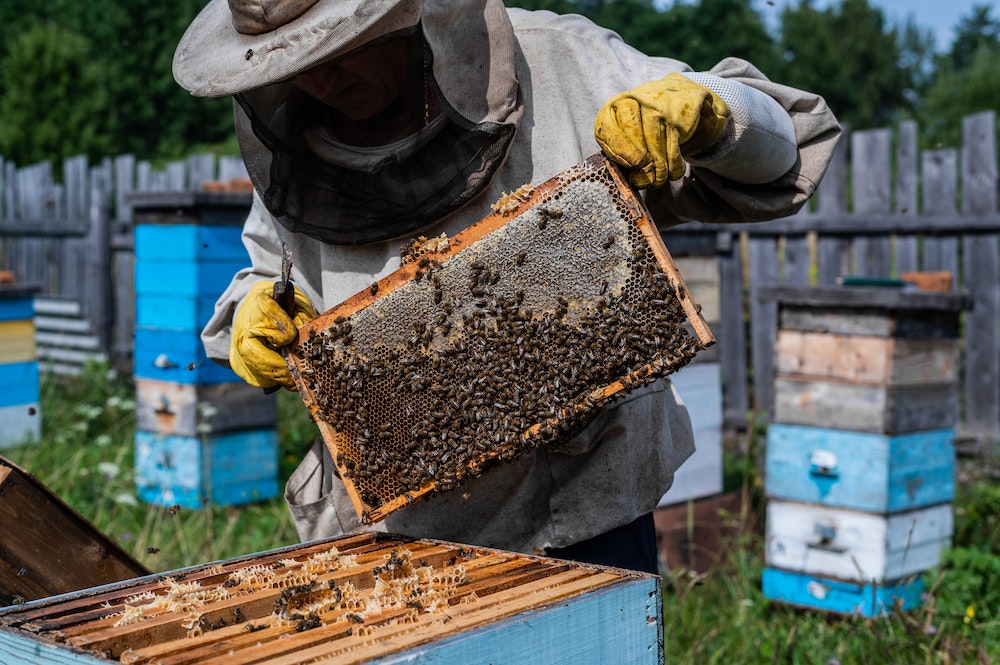What Are the Benefits of Urban Beekeeping for Biodiversity in the UK?

In recent years, urban beekeeping has emerged as a significant trend in many global cities, including those in the United Kingdom (UK). The sight of hives on city rooftops and in community gardens is becoming more common, as an increasing number of individuals and organisations embrace the practice. Urban beekeeping not only provides delicious local honey but also offers numerous benefits for biodiversity, conservation, and sustainability in urban areas. As you delve into this article, you will learn how urban beekeeping contributes to biodiversity in the UK and why it is a vital part of sustainable city living.
The Importance of Bees for Biodiversity
Bees play an integral role in ecosystems across the globe. As pollinators, they facilitate plant reproduction by transferring pollen from the male parts of a flower to the female parts. This process is crucial for the growth of fruits, vegetables, and nuts, many of which form the basis of our diets.
A lire en complément : Artists touring the UK and Ireland: news and dates
In the UK, there are around 250 species of bees, including the honeybee, bumblebees, and solitary bees. These species contribute significantly to native biodiversity, helping to support various plants and, by extension, the wildlife that depends on those plants for survival. Yet, these bee populations are under threat, primarily due to habitat loss, pesticide exposure, and climate change. Urban beekeeping can offer a solution to this problem.
Urban Beekeeping: A Tool for Conservation
Urban beekeeping serves as an effective tool for bee conservation. By establishing hives in cities, beekeepers create new habitats for bees, offsetting some of the habitat loss caused by urban development. Notably, urban environments can often provide more diverse food resources for bees compared to rural areas, where monoculture farming is common.
A lire également : How to Create an Engaging Podcast on UK’s Local History and Heritage?
Moreover, honeybees managed by urban beekeepers can aid in the conservation of wild bee species. Research from sources like Pubmed and Google Scholar has shown that honeybees can share their resources with wild bees, helping to support their populations. Community involvement in beekeeping also raises awareness about the importance of bees and the threats they face, which can lead to more widespread conservation efforts.
Improving Local Biodiversity with Urban Hives
Establishing urban hives can improve local biodiversity. Bees are exceptional pollinators, and their activities can help support a wide range of plant species in cities. By promoting a healthy and diverse plant community, bees can indirectly support other wildlife, enhancing the overall biodiversity in urban areas.
Furthermore, urban beekeeping can contribute to the conservation of native bee species. While the honeybee is not native to the UK, urban beekeepers can also keep native bees, such as the red mason bee or the leafcutter bee. These species are efficient pollinators and can thrive in urban hives, boosting local biodiversity.
The Role of Urban Beekeeping in Sustainable Cities
Urban beekeeping plays a significant role in the creation of sustainable cities. Bees contribute to local food systems by pollinating plants, many of which provide fruits, vegetables, and seeds that humans consume. Urban beekeeping thus supports food security and reduces the need for food transportation, which can lower carbon emissions.
Moreover, urban beekeeping encourages city dwellers to reconnect with nature and promotes a sense of community. Numerous organisations across the UK offer beekeeping courses and workshops, fostering community involvement and education around sustainable practices.
Connecting People and Bees through Technology
Technology plays a pivotal role in modern urban beekeeping. Online platforms and mobile apps provide resources for novice and experienced beekeepers alike, offering advice on everything from hive management to disease prevention. Google, for instance, has an initiative that uses artificial intelligence to monitor hive health.
Additionally, the internet allows urban beekeepers to connect with each other, forming online communities where they can share experiences and advice. Online forums and social media platforms serve as vital sources of information and support, making urban beekeeping more accessible and contributing to its growing popularity in UK cities.
Urban beekeeping, therefore, serves as a fantastic tool for biodiversity conservation and sustainability in the UK. By fostering healthy bee populations, it supports a plethora of plant species and local wildlife, contributing to vibrant and diverse urban ecosystems. Furthermore, it promotes sustainable food systems and community engagement, vital elements of sustainable city living. Lastly, through technology, it nurtures a community of urban beekeepers, who are the driving force behind this essential practice.
The Impact of Urban Beekeeping on Pollination Services
Urban beekeeping can significantly enhance pollination services in city environments. Pollination services are the actions performed by bees and other pollinators to facilitate plant reproduction. Bees are exceptional at this task; they are one of nature’s most efficient pollinators. In the urban context, the presence of bees can strengthen plant diversity and boost the growth of local flora.
In cities, where natural pollinators might be scarce due to urban development and pollution, urban beekeepers play a crucial role in maintaining and enhancing pollination services. As bees move from flower to flower, they transport pollen, facilitating cross-pollination. This process is vital for the reproductive cycle of plants, leading to fruit and seed production. Without bees, many plants would not be able to reproduce, which would have severe implications for both biodiversity and food production.
Furthermore, the pollination services provided by urban hives can support local food systems. For example, urban gardens and city farms greatly benefit from the pollination services of local bees. This not only promotes local food production, contributing to food security, but also reduces the need for long-distance food transportation, thereby decreasing associated carbon emissions.
Research from respected sources like Google Scholar and PubMed has also highlighted the importance of managed honey bees (Apis mellifera) in complementing the pollination services of wild bees. While there is concern about potential competition for resources between honey bees and wild bees, well-managed urban beekeeping can ensure resource availability for both groups, leading to improved pollination services and increased biodiversity.
Conclusion: Urban Beekeeping as a Catalyst for Biodiversity
In conclusion, urban beekeeping offers significant benefits for biodiversity in the UK. By creating new habitats for bees and providing valuable pollination services, urban beekeepers can contribute to the conservation of both managed and wild bee species. Their actions can also enhance local biodiversity, supporting a wide range of plant species and indirectly benefiting other forms of urban wildlife.
Urban beekeeping also plays a substantial role in promoting sustainable city living. It supports local food systems, strengthens community ties, and raises awareness about the importance of bees and biodiversity. The use of technology, particularly online platforms and mobile apps, further supports these efforts by providing resources and creating a sense of community among urban beekeepers.
As this article has demonstrated, urban beekeeping is not just about producing local honey. It is a practice that intersects with issues of biodiversity, conservation, food security, community engagement, and sustainability. As such, it deserves recognition and support as a vital component of sustainable urban living in the UK.
In the face of ongoing urban development and environmental challenges, practices like urban beekeeping can provide a beacon of hope for the future of biodiversity. As the community of urban beekeepers continues to grow, so too does the potential for cities to become spaces of rich biodiversity and sustainable living. As we look to the future, the buzz of bees in our cities might become a sound synonymous not only with local honey production but also with vibrant urban ecosystems and sustainable city life.
